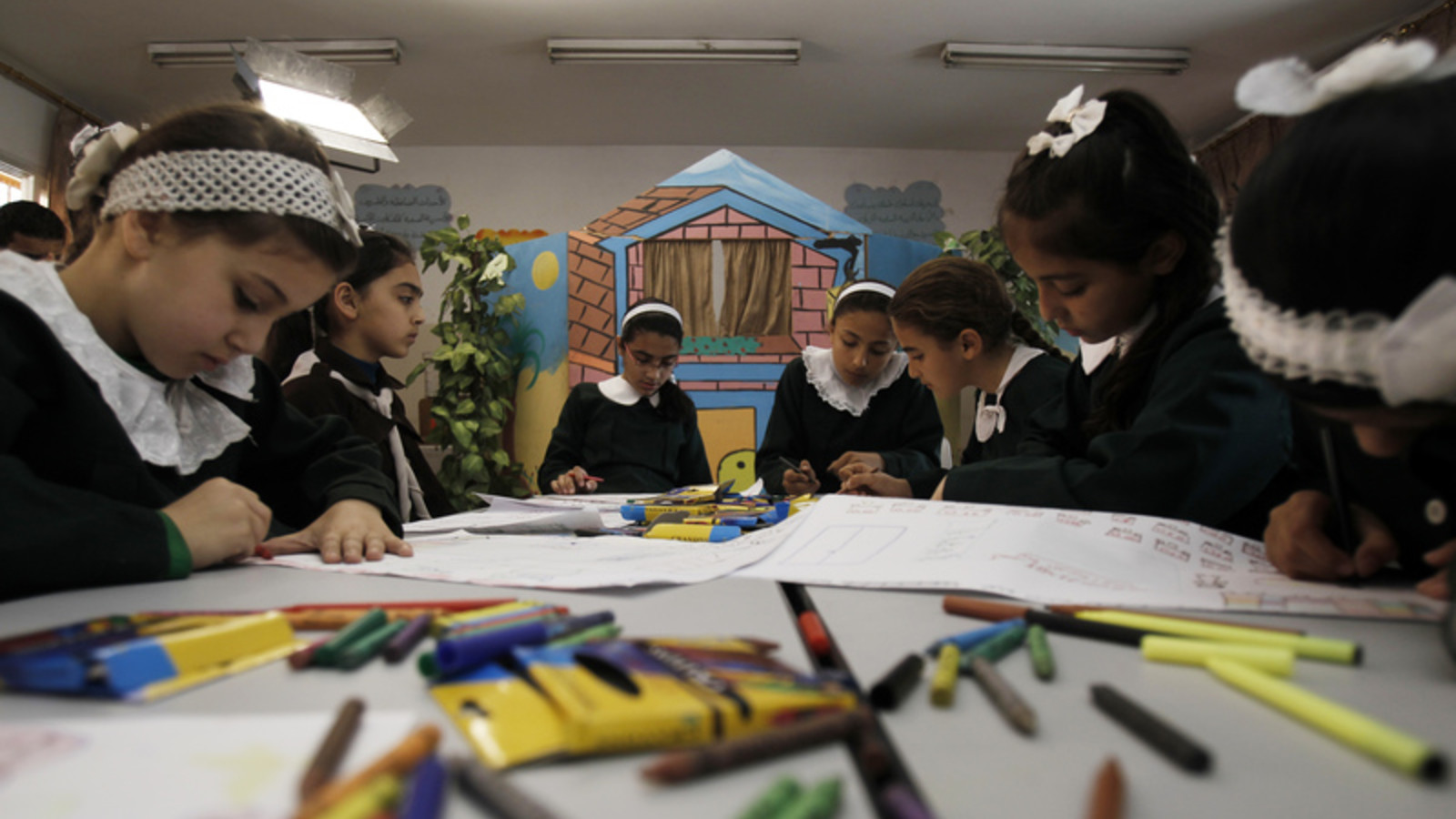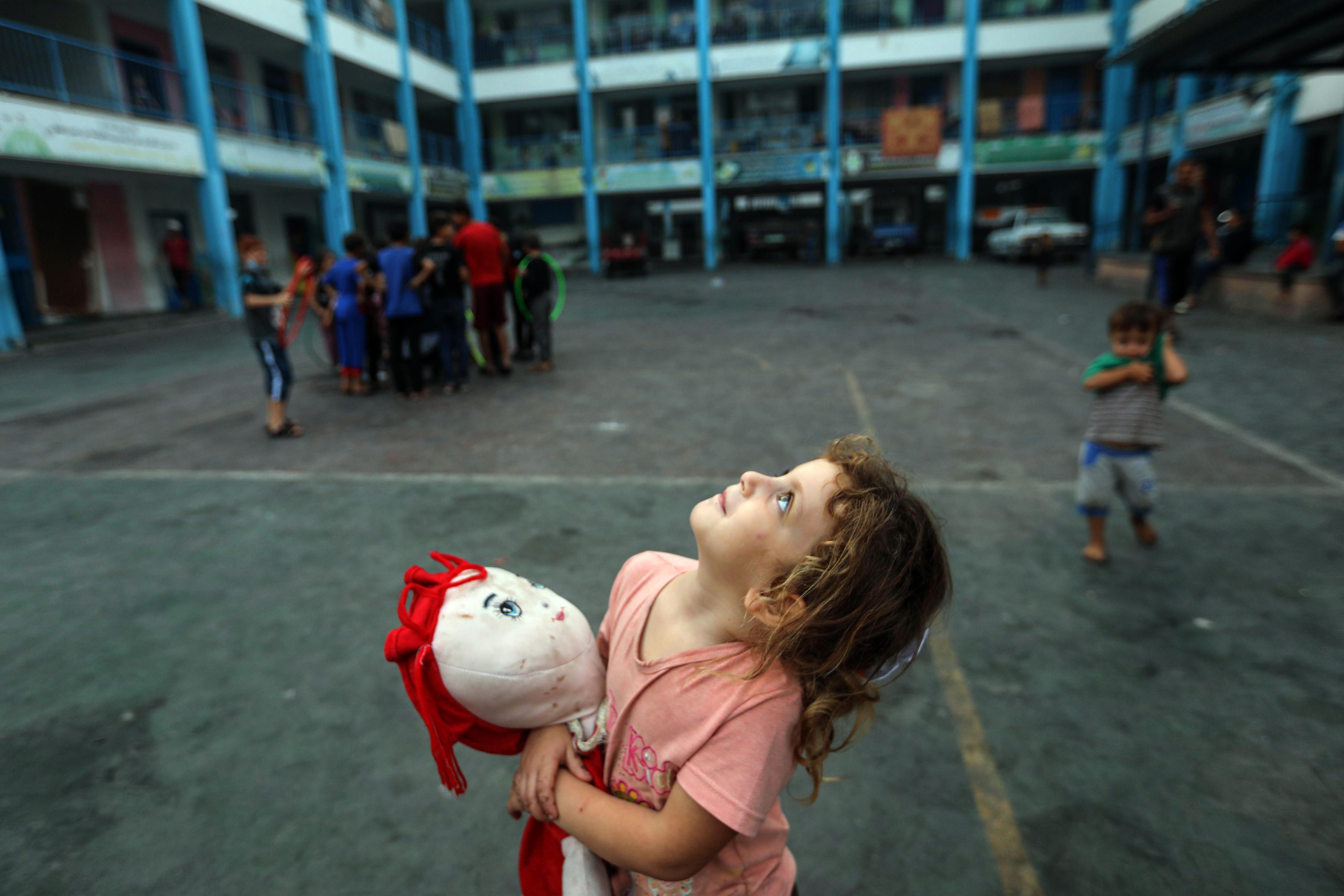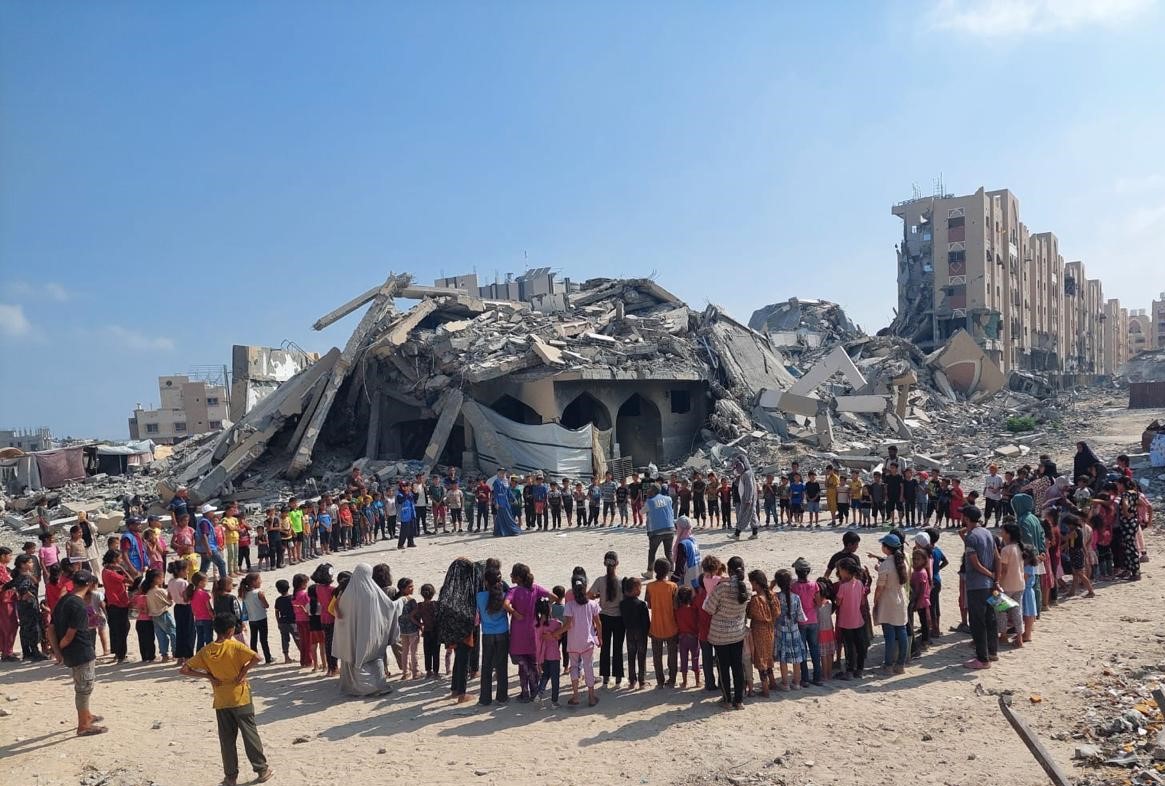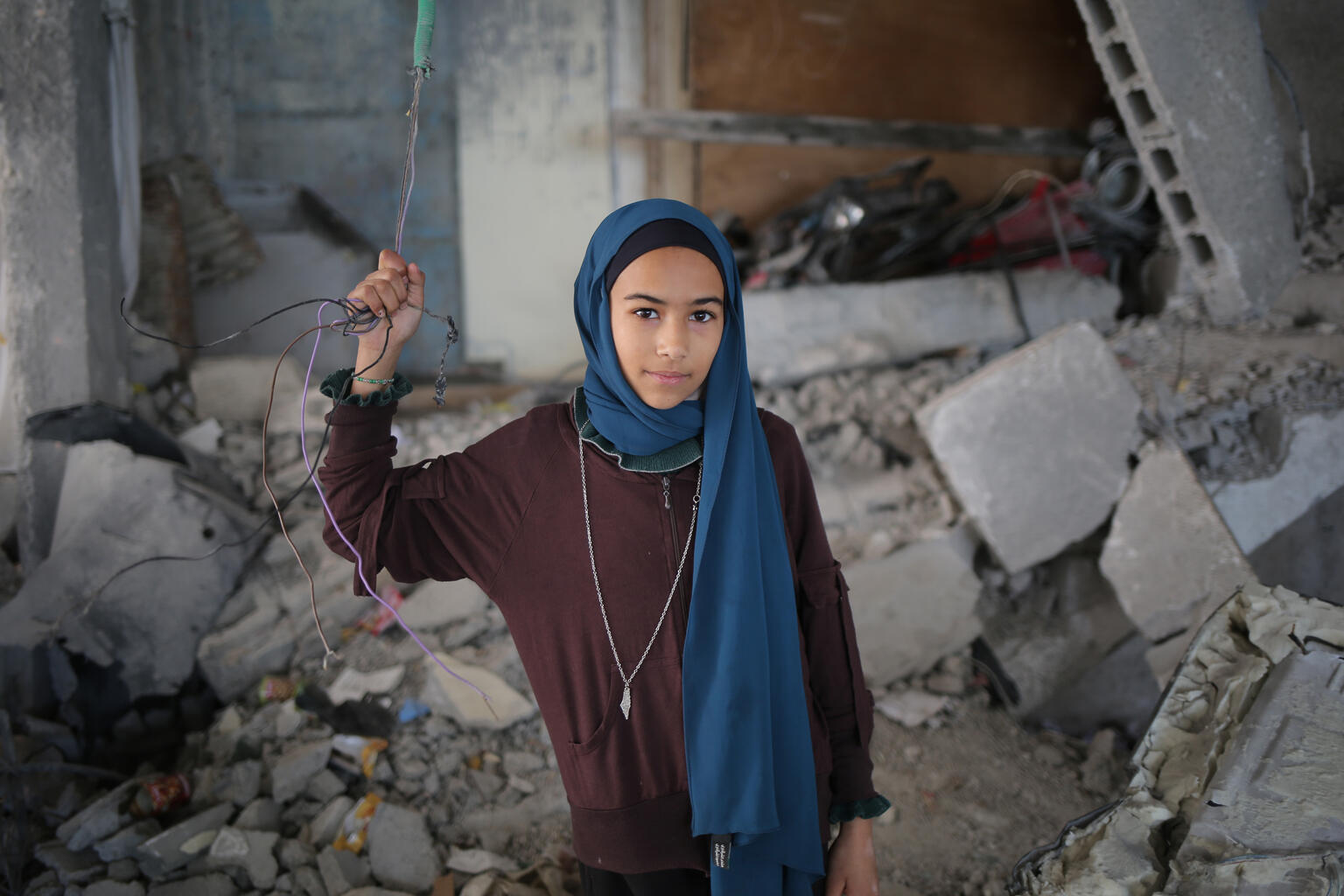ECW in State of Palestine
The protracted crisis in the State of Palestine has resulted in unsafe learning environments for millions of Palestinian girls and boys. Travelling to school is unsafe for students, and schools are frequently attacked or occupied for military purposes. Additionally, poverty and restricted services limit academic capabilities, putting education at risk. To address these issues, Education Cannot Wait (ECW) has been supporting education programmes in the State of Palestine since 2018. The Fund supports partners to strengthen the academic infrastructure; support educators; and provide ongoing training to address the academic and psychosocial needs of students. Interventions also help students detained or placed under house arrest to reintegrate into the educational system.
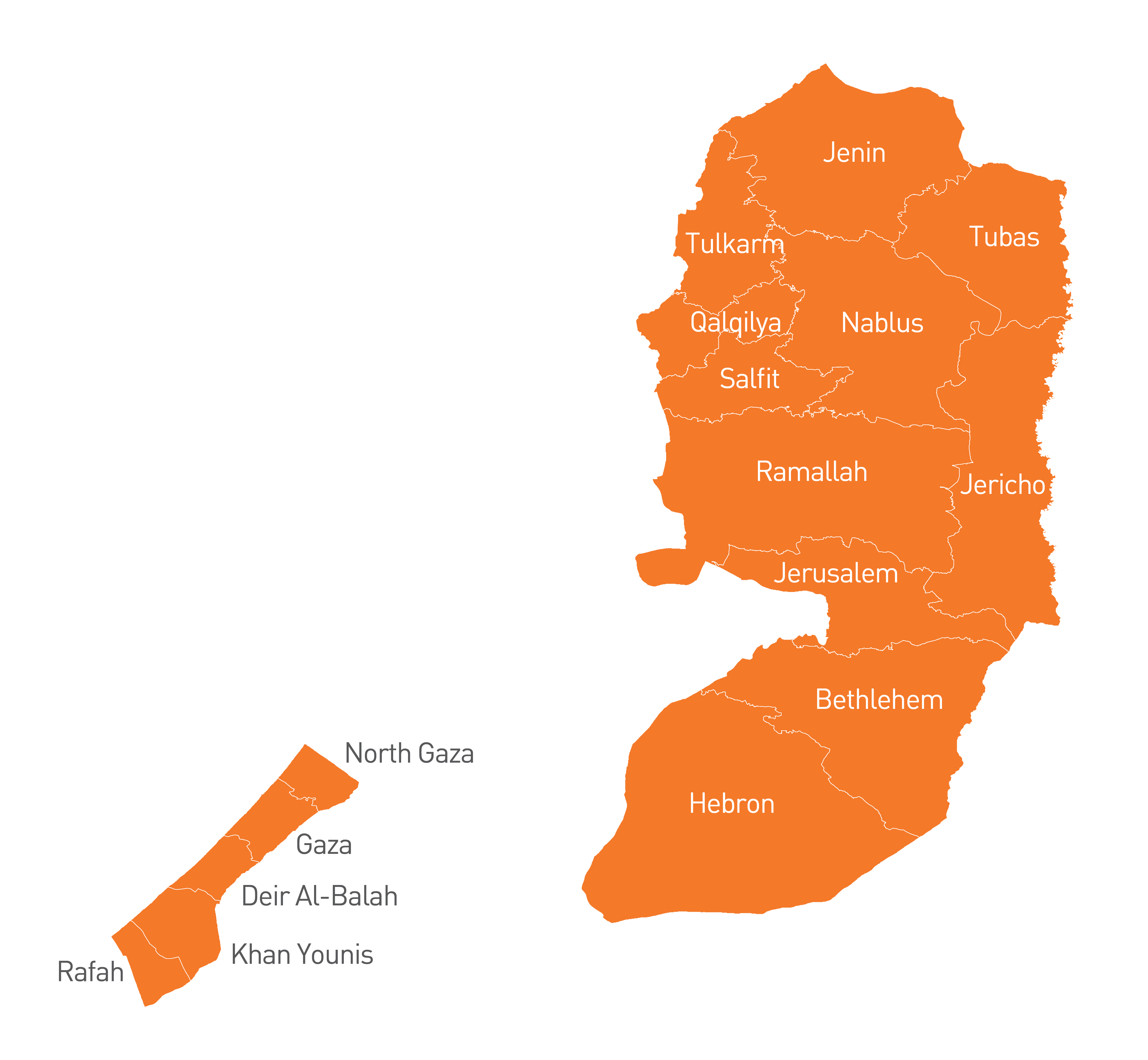
Investments
Financial Information
National Counterparts
Ministry of Education
Results
Additional Results
- Number of teachers/administrators trained in mental health and psychosocial and psychological support topics: 1,161
- Number of learning spaces that have a functioning school-management committee and/or parent-teacher association: 355
COVID-19 Results
Programme Info
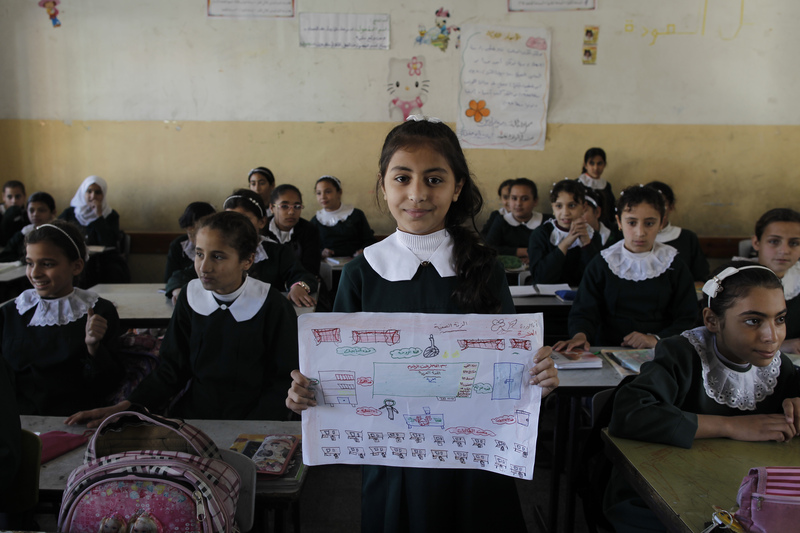
Once at school, many children and adolescents are still unsafe. Access to education remains compromised by school attacks, threats against school staff and students, and military takeover of school facilities. In the Gaza Strip, the blockade and multiple escalations of hostilities have repeatedly damaged and destroyed an already fragile education infrastructure.
Amid widespread poverty, an economy in decline and a breakdown of public services, the COVID-19 pandemic only worsened the situation in both territories. After the closure of education facilities in March 2020, it was imperative to reach over a million children with distance learning.
Unaddressed trauma negatively impacts the educational outcomes and can cause developmental challenges. Therefore, ECW funding supports children who have been detained with remedial education and vocational training to help reintegrate them into the formal education system. Furthermore, the Multi-Year Resilience Programme (MYRP) supports the changing needs in terms of access to water; sanitation and hygiene (WASH); mental health and psychosocial support (MHPSS); and distance learning through infrastructure improvements, teacher and counsellor training and support in the form of educational materials.
Programme Components
- Providing vocational training and remedial education for children in conflict. This programme is a comprehensive package of rehabilitative services for children under house arrest and ex-detainee children. Boys participate in vocational assessments, with the vast majority receiving vocational training referrals in construction, masonry, cooking, electrical and mechanical work, and computing. Additionally, funding supports remedial classes in Arabic, chemistry, English and mathematics. Classes are offered both virtually and in person at the students’ homes or at vocational centres, taking into consideration safety and social distancing standards. The remedial classes focus on facilitating the reintegration of children into the formal education system.
- Recruiting and training teachers and counsellors. Grantees recruit hundreds of predominantly female education staff, including support teachers and psychosocial counsellors, in the Gaza Strip and West Bank. Teachers are assisted with classroom instruction in Arabic and mathematics, focusing on the special needs of children with disabilities; children with conflict-related injuries; and children with chronic health issues. Additional personnel, including counsellors and teachers, receive training in the provision of psychosocial support, benefiting thousands of children.
- Strengthening school infrastructure. Supports infrastructure work that contributes to an improved learning environment for hundreds of students, mostly girls. In Gaza, schools are identified for rehabilitation, and then the adaptive and maintenance work is undertaken. Infrastructural improvements include accessible facilities for students with disabilities, upgraded WASH facilities (particularly for girls) and energy efficiency features.
- Supplying learning materials for children. Grantees procure and deliver literacy and numeracy materials to students at all the schools supported in the West Bank. The materials support remote learning, especially for the period of school closures due to COVID-19. In Gaza, funding provides third and fourth graders with additional materials, including Arabic and mathematics worksheets. Science and technology learning toolkits are distributed to enhance learning in Gaza’s schools. Grantees provide desks, tables, and chairs to schools in the West Bank.
For more information on ECW's work in the State of Palestine, please contact Country Lead Nasser Faqih (nfaqih@unicef.org).

